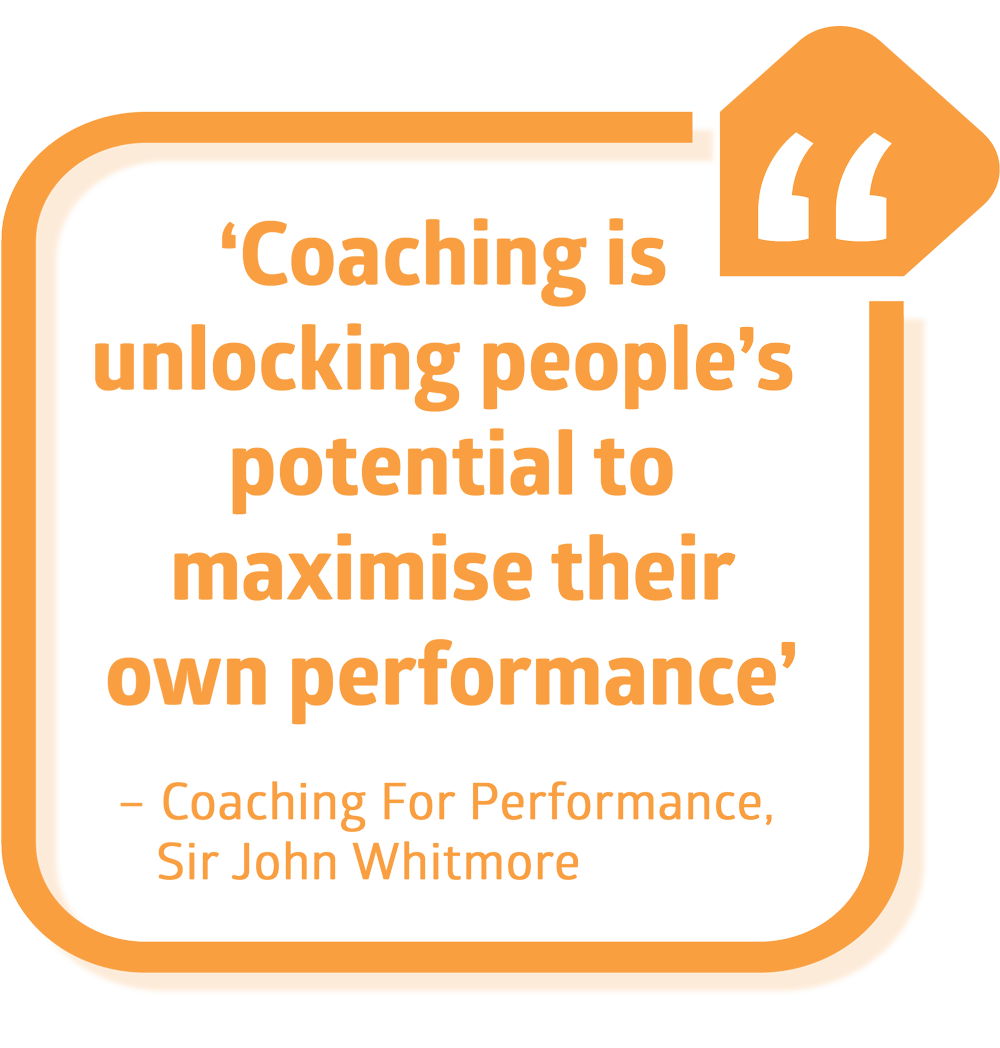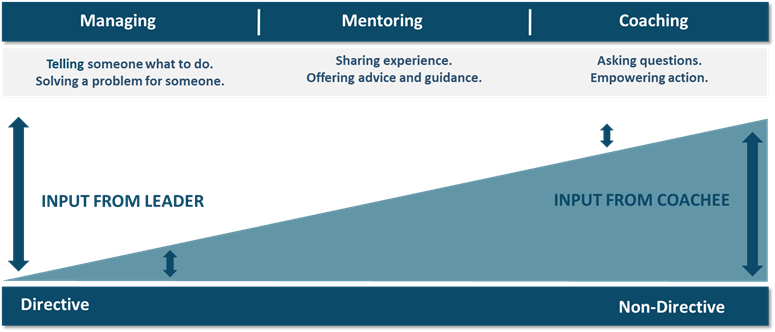‘Coaching’ is a term that many of us may well have heard of, but how well do we understand the power of the process? Let’s ‘begin with the end in mind’, as described by Stephen R Covey in 7 Habits of Highly Effective People.
The key objective of coaching is to empower an individual to improve performance and reach their personal and professional goals. Still, there is often the misconception that offering guidance/advice in the form of mentoring is coaching. However, this is not the same as coaching (see table below). Coaching in its truest form is all about empowering an individual. It is completely non-directive and involves asking powerful, thought-provoking questions to enable the coachee (person being coached) to work out solutions for themselves.


In this sense, coaching is not teaching. Instead, it is about creating the conditions for learning and growing, understood to be one of the most effective ways to improve performance.
Leader as Coach Model


Adapted by Medline Learning from Tannenbaum & Schmidt’s 1973 Model of Leadership Behaviour.
Why coaching in the workplace is important
Coaching in an organisation has many benefits. The Chartered Institute of Personnel and Development (CIPD), a professional body for human resources (HR) and people development worldwide, describes coaching as the following for organisations:
- Focuses on improving performance and developing individuals
- May include personal factors but emphasises performance at work
- Coaching activities have both organisational and individual goals
- Provides people with the opportunity to better assess their strengths and areas for development
- A skilled activity to be delivered by people who are trained to do so—line managers and others with professional coaching skills.
How has coaching helped me?
1. Daily goals for self-improvement
We all want to be successful. However, if we don’t define what success looks like for us, how will we ever get there? We must, therefore, define our personal and professional goals clearly and have them written down! I’ve learnt that breaking down these goals into consistent daily actions is essential to success, as it is these daily actions and habits that truly matter.
2. Improved performance
By focusing on what matters and working on these daily goals, my performance in my current role and beyond has most certainly improved. By getting the smaller things right, I am also getting the bigger things right! It’s amazing how significant an impact small daily habits can have on our long-term goals. Success slowly ‘snowballs’.
3. Individual goal setting – Mount Everest Base Camp
I have just come back from a lifetime adventure trekking to the Mount Everest Base Camp. This was a huge personal goal and challenge for me, both physically and mentally. I am not a trekker but I wanted to set a goal so big to prove to myself that I am capable of anything I put my mind to—something that is true for all of us. I would say using the principles of coaching enabled me to get there.
Here is an overview:
- I set myself a vision, which very quickly became overwhelming.
- So, I developed a 98-day plan Excel sheet. This prepared me well!
- During the trek, there were times when both mind and body were ready to give up.
- Some days, even the goal of getting through the day was too much to contemplate.
- However, I kept focused, shortened my timeframes and literally had to focus on every foot forward to get through.
- Thankfully, after 9 days, I made it and got the closest I could to the ‘roof of the world’!


Coaching for change and performance
Coaching can change lives and has the potential to significantly improve performance and the chances of goal attainment, regardless of performance or seniority level. Whatever your role in any organisation, remember anything is possible. Our performance and future successes are determined by the actions we take today. It is also important for us to remember that our lives are multi-dimensional. Our priorities span work, a range of relationships, health and well-being, finances, fun, adventure and many other areas that are important to us. Furthermore, our personal lives affect our performance at work and the reverse is also true.
It is, therefore, essential to look at all areas that affect our performance, and this is what a good coach can help us do in order to unlock our potential. So find yourself a performance coach, understand where you are, and gain clarity on where you want to be, both personally and professionally. Finally, set clear goals and have a clear plan of action for yourself, so you can work daily towards them.
#ThePowerofCoaching took me to Mount Everest. Where could it take you?


Sushil Sirpal
Sushil Sirpal, Account Manager, Critical Care, Medline UK
Sushil has over 16 years of experience within the UK healthcare industry. Since graduating with a Bachelor’s in Business and Computing, he has worked for several global companies, starting in the pharmaceutical sector, then transitioning to medical equipment/devices—working in sales and business development roles. As of 2021, he is also a qualified professional Performance Coach. Learn more on LinkedIn.

